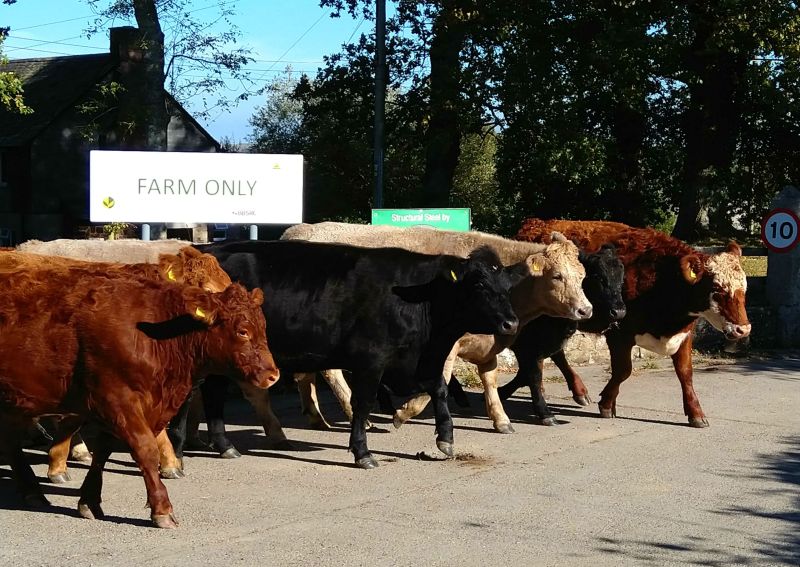
A new app can help farmers finish cattle to retailers’ specifications with greater precision, avoiding lower prices for the farmer and waste in the value chain.
Changing customer tastes mean that almost half of prime beef now fails to meet ideal market specifications.
The app will help farmers finish cattle to retailers’ specifications with greater precision, underpinned by the data to evidence this.
The Field to Yield trial, launched by agri-tech company Breedr in conjunction with Rothamsted Research, sets to improve the metrics available to farmers.
Breedr co-founder Ian Wheal was brought up on a mixed livestock farm in Australia, where his father was one of the first to adopt electronic tagging.
The tags capture information about the performance of individual animals and enable an audit trail to be created of tests and treatments, time on grass and other animal health and welfare interventions.
'Flying blind'
Mr Wheal explains that this knowledge of data-driven production has helped him to develop a decision support system for UK producers.
He says: “There is a big drive towards loin steaks and burgers from consumers, however the current EU-wide EUROP grading system, which is used to value beef, was originally designed when rump was the main piece of beef consumed.
“The result is that today’s farmers are flying blind when trying to meet the specifications of retailers for meat with less fat and improved taste.”
Data from the AHDB suggests that if customers have a bad eating experience it can take up to 12 weeks for them to buy that specific cut of meat again.
Currently, producers use their experience and expertise to visually assess conformation and estimate carcass weight as a percentage of live weight.
However, Mr Wheal says it seems this no longer syncs with what retailers need for their customers.
"We are looking at ways to capture this information in a more evidence-based way that will provide farmers more meaningful insights," he says.
“One example would be to provide better understanding of how genetics and breeding can create a desirable frame size. Also, to investigate how the use of 3D camera technology can help standardise measurement and give a much earlier predictor of value, and better align to the actual needs of a processor.”
Decisions on breeding
Breedr aims to create a virtuous circle where consumer behaviours and buying decisions are fed back through the value chain to inform decisions on breeding, feeding and animal welfare, and livestock producers can provide data evidence that they are producing premium meat.
The company is working with Professor Michael Lee, Head of Sustainable Agricultural Sciences at Rothamsted Research and Chair in Sustainable Livestock Systems at Bristol Veterinary School, on the Field to Yield project, which is funded by the Impact Labs.
Prof Lee says: “Our research shows that it is possible to produce livestock with the desired attributes within 18 months from pasture based finishing, to balance the needs of production efficiency, product quality and environmental impact.
"But to achieve such targets requires excellent pasture management, appropriate animal genetics and visualisation tools to predict carcass and eating quality.”
The app aims to bring data to the supply chain that can help processors and retailers buy appropriate animals, increase usable meat for their need and reduce variance in supply.
